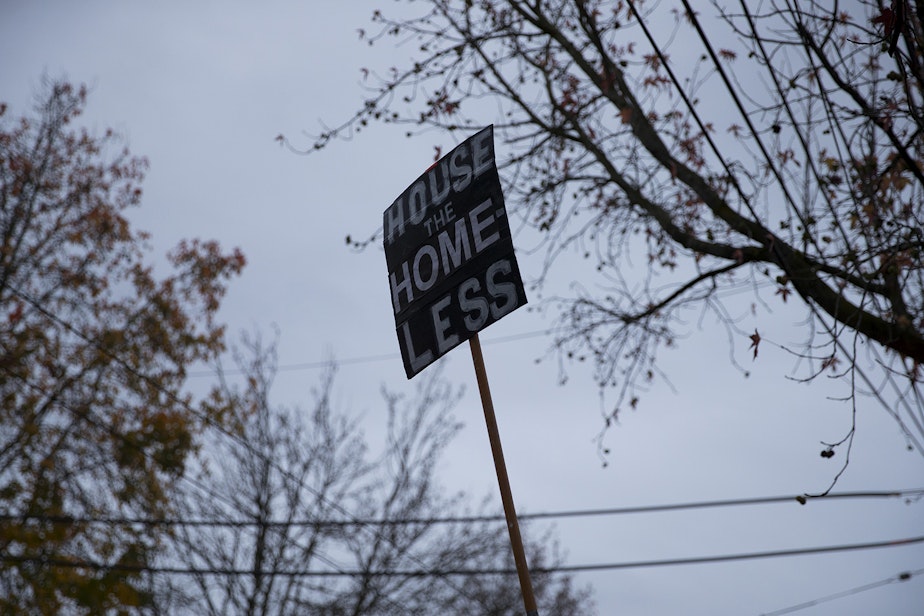King County's hotel shelters help address one crisis while potentially hiding another

Seattle and King County have been experimenting with using hotel rooms to house people rather than directing them to crowded homeless shelters. The county currently operates six hotel shelters that house more than 800 people.
This model was especially useful during the Covid-19 pandemic, giving more people options to get off the streets while limiting the potential for spreading the virus.
But some service providers fear the hotel rooms could be hiding another crisis: drug overdoses.
Greg Kim covers homelessness for The Seattle Times. He spoke with KUOW's Kevin Kniestedt about how service providers are trying to stop overdoses behind closed doors.
To date, there have been nine overdose deaths among people housed by the hotel shelter program. Kim interviewed a woman named Kimberly Liptau, who came dangerously close to meeting that same fate.
Sponsored
“A few months after staying there, he was taking a hit of crack cocaine, and she didn't know that it was laced with fentanyl,” Kim explained. “But she immediately overdosed. She said she was alone in a room, and that she would have died, [but] her boyfriend, who was staying in another unit in the hotel, just happened to stop by and he contacted paramedics and medical staff in the hotel.”
It’s not hard to understand why a private room would be more appealing than a packed shelter.
“You can imagine, in a large room with a lot of people crowded together, that creates an atmosphere of tension,” Kim said. “There are a lot of fights that breakout, there are people who might have a mental health illness or substance use disorder all crowded together. That's not an environment that a lot of people want to be in.”
But the presence of others can be the difference between life and death amid an overdose. For Liptau’s part, she was given a roommate, along with anti-opioid medication.
Providers are trying out other strategies, too.
Sponsored
“In some places…providers have installed a physical button inside the hotel room,” Kim said. “The person staying there can press it, then start using. And if they don't press it again in 10 minutes or so, then staff can go in and check on them.”
Kim added that some providers have installed reverse motion detectors, which can sense when a person has stopped moving.
Despite the challenges facing hotel shelters, Kim said advocates and experts he spoke with are overwhelmingly in favor of keeping the system in place.
“The number of people fatally overdosing inside…congregate shelters —mass shelters — or hotel shelters pales in comparison to the number that are dying outside. So that suggests that even if there is this increased danger within hotels rooms, it it's still far safer than being outside,” he said.


